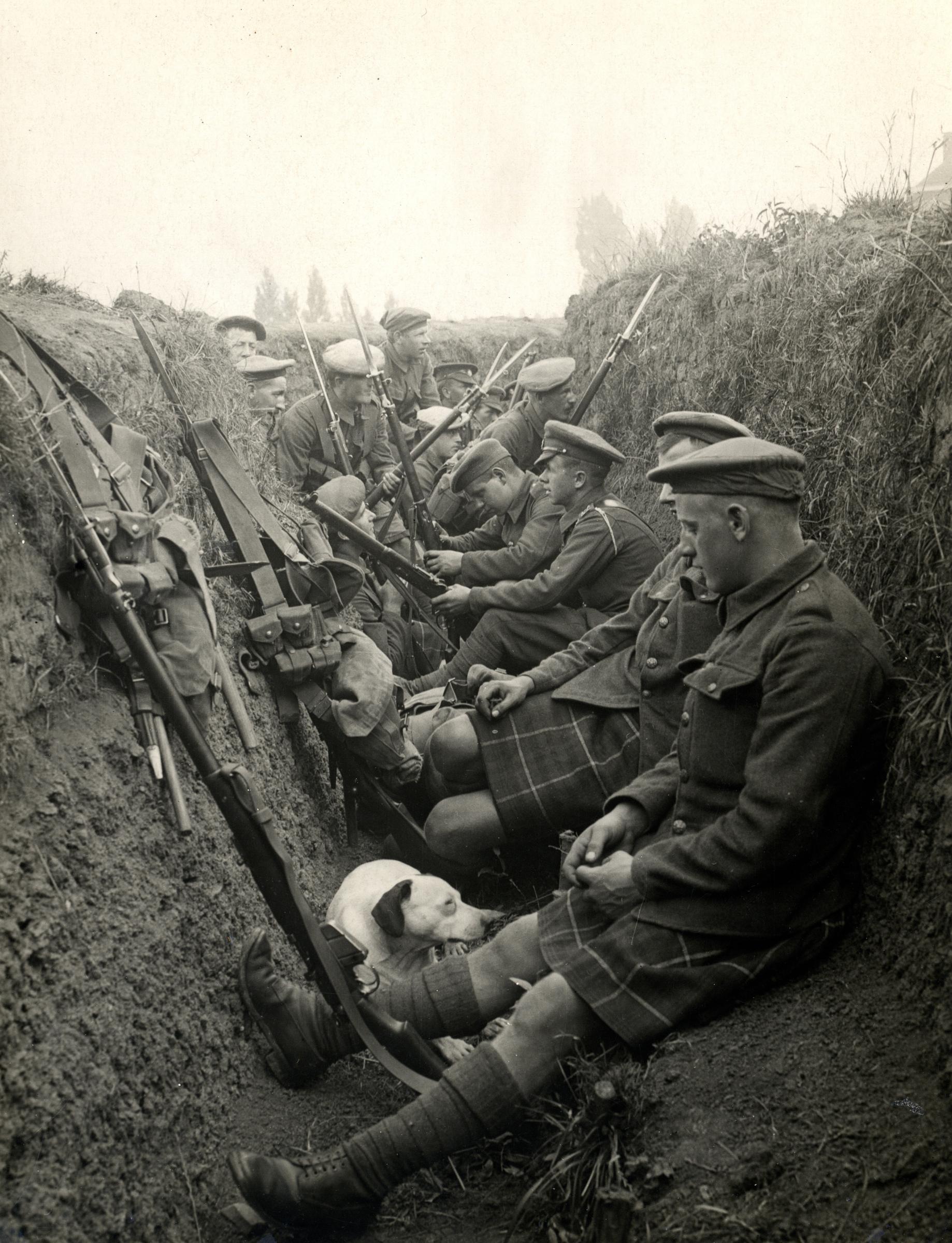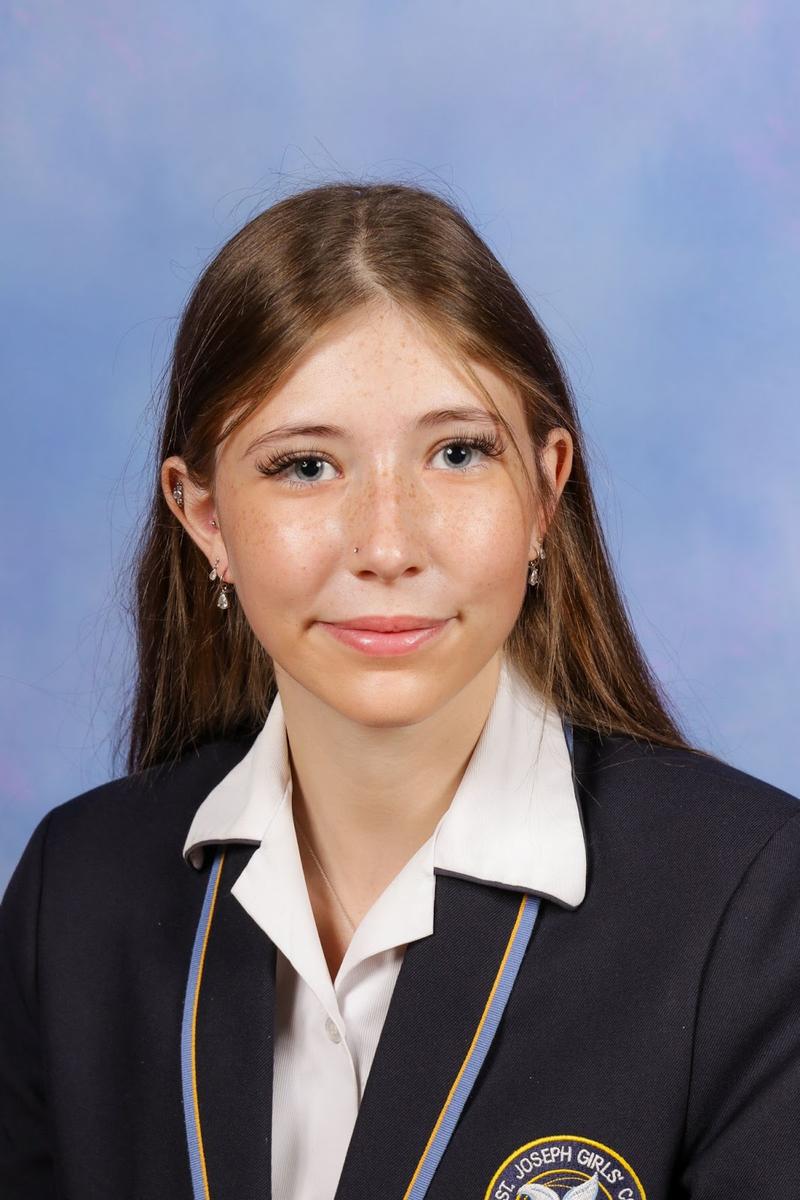Humanities

- Accounting
- Business Management
- Politics
- History
- Revolutions
- Legal Studies
- Geography
When selecting your Humanities study for VCE, please consider the following points:
- Well-established habits of regular study in the subject area provides the basis for selection of Humanities subjects at VCE.
- There are no prerequisites for entry into Units 1 and 2 however students must undertake Unit 3 prior to undertaking Unit 4. Students electing a Unit 3-4 course in Humanities should complete Units 1 and/or 2 in the relevant study to ensure appropriate skill and knowledge development.
- Some of the subject areas have excursions or camps associated with the successful completion of outcomes. These activities are compulsory.
Accounting
Subject Entry Information | Complementary Subjects | Types of Assessment |
|---|---|---|
|
|
|
Watch the video testimonial here:
Mia Fanjek - Real life practical skills and small class size due to limited people taking the subject were some advantages of studying accounting. Each chapter builds off and connects to the last, causing SACs over time to include a large chunk and range of content. If you learn the key terms and definitions properly from the very beginning, it has a huge effect on results both in 1/2 and 3/4.
Description
VCE Accounting explores the financial recording, reporting, analysis and decision-making processes of a sole proprietor small business. Students study both theoretical and practical aspects of accounting. They collect, record, report and analyse financial data, and report, classify, verify and interpret accounting information, using both manual methods and information and communications technology (ICT).
Unit 1: Role of accounting in business
This unit explores the establishment of a business and the role of accounting in the determination of business success or failure. In this, it considers the importance of accounting information to stakeholders. Students analyse, interpret and evaluate the performance of the business using financial and non-financial information. They use these evaluations to make recommendations regarding the suitability of a business as an investment. Students record financial data and prepare reports for service businesses owned by sole proprietors.
Unit 2: Accounting and decision-making for a trading business
In this unit students develop their knowledge of the accounting process for sole proprietors operating a trading business, with a focus on inventory, accounts receivable, accounts payable and non-current assets. Students use manual processes and ICT, including spreadsheets, to prepare historical and budgeted accounting reports.
Students analyse and evaluate the performance of the business relating to inventory, accounts receivable, accounts payable and non-current assets. They use relevant financial and other information to predict, budget and compare the potential effects of alternative strategies on the performance of the business.
Unit 3: Financial accounting for a trading business
This unit focuses on financial accounting for a trading business owned by a sole proprietor, and highlights the role of accounting as an information system. Students use the double entry system of recording financial data and prepare reports using the accrual basis of accounting and the perpetual method of inventory recording.
Students develop their understanding of the accounting processes for recording and reporting and consider the effect of decisions made on the performance of the business.
Unit 4: Recording, reporting, budgeting and decision-making
In this unit students further develop their understanding of accounting for a trading business owned by a sole proprietor and the role of accounting as an information system. Students use the double entry system of recording financial data, and prepare reports using the accrual basis of accounting and the perpetual method of inventory recording. Both manual methods and ICT are used to record and report.
Students extend their understanding of the recording and reporting process with the inclusion of balance day adjustments and alternative depreciation methods. They investigate both the role and importance of budgeting in decision-making for a business. They analyse and interpret accounting reports and graphical representations to evaluate the performance of a business.
Business Management
Subject Entry Information | Complementary Subjects | Types of Assessment |
|---|---|---|
|
|
|
Ashyl Pereira - I chose this subject because I was interested in studying commerce/business at University. I thought choosing business management would give me an understanding of what it would be like to choose that area of study. I really enjoy learning and understanding the inner operations of a business. There is a lot of things I learnt that I was able to apply to my own part time job, and it made this subject a lot more engaging and fun to learn. It is definitely very content heavy, so there is quite a lot to remember. In addition, when answering questions in SACs, it can be a little challenging to apply the content to the case study itself, so its really important to know all the content. I would also tell other students to learnt to manage their time really well, since there is so much writing in a short amount of time.
Description
VCE Business Management examines the ways businesses manage resources to achieve objectives. The VCE Business Management Study Design follows the process from the initial idea for a business concept, to planning and establishing a business, through to the day-to-day management of a business. It also considers changes that need to be made to ensure the continued success of a business. Students develop an understanding of the complexity of the challenges facing decision-makers in managing businesses and their resources.
Unit 1: Planning a business
Businesses of all sizes are major contributors to the economic and social wellbeing of a nation. The ability of entrepreneurs to establish a business and the fostering of conditions under which new business ideas can emerge are vital for a nation’s wellbeing. Taking a business idea and planning how to make it a reality are the cornerstones of economic and social development. In this unit students explore the factors affecting business ideas and the internal and external environments within which businesses operate, as well as the effect of these on planning a business. They also consider the importance of the business sector to the national economy and social wellbeing.
Unit 2: Establishing a business
This unit focuses on the establishment phase of a business. Establishing a business involves compliance with legal requirements as well as decisions about how best to establish a system of financial record keeping, staff the business and establish a customer base. In this unit students examine the legal requirements that must be met to establish a business. They investigate the essential features of effective marketing and consider the best way to meet the needs of the business in terms of staffing and financial record keeping. Students analyse management practices by applying key knowledge to contemporary business case studies from the past four years.
Unit 3: Managing a business
In this unit students explore the key processes and considerations for managing a business efficiently and effectively to achieve business objectives. Students examine different types of businesses and their respective objectives and stakeholders. They investigate strategies to manage both staff and business operations to meet objectives, and develop an understanding of the complexity and challenge of managing businesses. Students compare theoretical perspectives with current practice through the use of contemporary Australian and global business case studies from the past four years.
Unit 4: Transforming a business
Businesses are under constant pressure to adapt and change to meet their objectives. In this unit students consider the importance of reviewing key performance indicators to determine current performance and the strategic management necessary to position a business for the future. Students study a theoretical model to undertake change and consider a variety of strategies to manage change in the most efficient and effective way to improve business performance. They investigate the importance of effective management and leadership in change management. Using one or more contemporary business case studies from the past four years, students evaluate business practice against theory.
Assessment:
Percentage contributions to the study score in VCE Business Management for Units 3 and 4 are as follows:
- Unit 3 School-assessed Coursework: 25%
- Unit 4 School-assessed Coursework: 25%
- End-of-year examination: 50%
Politics
Subject Entry Information | Complementary Subjects | Types of Assessment |
|---|---|---|
|
|
|
Watch the video here:
Description
Global Politics is the study of the political, social, cultural and economic forces that shape interactions between states and other global actors in the contemporary world. It examines the interconnectedness of the contemporary global political arena and the impact of globalisation on culture, sovereignty, human rights and the environment. It examines the nature and power of key global actors and the types of power used by an Asia-Pacific state to achieve its national interests.
Unit 1: Politics, power and political actors
In this unit, students learn that politics is about how political actors use power to resolve issues and conflicts over how society should operate. Each area of study focuses on concepts that form essential disciplinary knowledge, and which allow students to gradually build on their understanding of what it is to think politically.
Political actors are individuals such as political leaders or ordinary citizens, or organisations such as parliaments or the United Nations, who have some measure of political power and/or authority and who engage in activities that can have a significant influence on decisions, policies, public discussion, media coverage and outcomes associated with a given issue. They may be local, national, regional or global.
Unit 2: Democracy: stability and change
In this unit, students investigate the key principles of democracy and assess the degree to which these principles are expressed, experienced and challenged, in Australia and internationally. They consider democratic principles in the Australian context and complete an in-depth study of a political issue or crisis that inherently challenges basic democratic ideas or practice. Students also investigate the degree to which global political actors and trends can challenge, inhibit or undermine democracy, and evaluate the political significance of these challenges. Each area of study focuses on concepts that form essential disciplinary knowledge, and which allow students to gradually build on their understanding of what it is to think politically.
Unit 3: Global cooperation and conflict
In this unit, students investigate an issue and a crisis that pose challenges to the global community. Students begin with an investigation into an issue of global scale, such as climate change, global economic instability, the issue of development or weapons of mass destruction. Students also examine the causes and consequences of a humanitarian crisis that may have begun in one state but which has crossed over into neighbouring states and requires an emergency response. This crisis must be chosen from the areas of human rights, armed conflict and the mass movement of people. They consider the causes of these issues and crises, and investigate their consequences on a global level and for a variety of global actors.
Unit 4: Power in the Indo-Pacific
In this unit, students investigate the strategic competition for power and influence in the Indo-Pacific region. They consider the interests and perspectives of global actors within the region, including the challenges to regional cooperation and stability. Building on their study of global issues and contemporary crises in Unit 3, students develop their understanding of power and national interests through an in-depth examination of one state’s perspectives, interests and actions. Students must choose one state from the People’s Republic of China, Japan, the Republic of India, the Republic of Indonesia or the United States of America. Students also examine Australia’s strategic interests and actions in the region and consider how Australia’s responses to regional issues and crises may have contributed to political stability and/or change. They do this within the context of Australia’s relationships with one Pacific Island state and two other regional states.
Assessment
Percentage contributions to the study score in VCE Politics are:
- Unit 3 School-assessed Coursework: 25 per cent
- Unit 4 School-assessed Coursework: 25 per cent
- end-of-year examination: 50 per cent
Modern History
Description
History is the practice of understanding and making meaning of the past. The subject provides opportunities to develop historical understanding through key concepts including continuity and change, cause and effect, alternate perspectives, empathy and significance. History involves two key strands: Historical Knowledge and Understanding and Historical Skills.
Unit 1: Change and Conflict
In this unit students investigate the nature of social, political, economic and cultural change in the later part of the 19th century and the first half of the 20th century. Modern History provides students with an opportunity to explore the significant events, ideas, individuals and movements that shaped the social, political, economic and technological conditions and developments that have defined the modern world.
Unit 2: The Changing World Order
In this unit students investigate the nature and impact of the Cold War and challenges and changes to social, political and economic structures and systems of power in the second half of the twentieth century and the first decade of the twenty-first century.
The establishment of the United Nations (UN) in 1945 was intended to take an internationalist approach to avoiding warfare, resolving political tensions and addressing threats to human life and safety.
History: Revolutions
Subject Entry Information | Complementary Subjects | Types of Assessment |
|---|---|---|
|
|
|
Imogen Seward - I have always loved learning about the past, particularly the transformation of society and how values of the past have influenced modern society. I absolutely loved the French revolution and the different experiences social groups had, particularly the role of women which is significantly overlooked. I love the discussions that occur in class. The most challenging part of History is remembering information and getting the perfect balance of using your own information and the source's information when responding to a question. Take good notes, ask questions, answer questions, do practice questions. History can be difficult but if you allocate time to it, it's much easier. Also, don't be afraid to ask for clarification on a topic. Do not let the amount of content scare you from persuing History.
Watch the video testimonials here:
Description
Unit 3 and 4: Revolutions
In Units 3 and 4 Revolutions students investigate the significant historical causes and consequences of political revolution. Revolutions represent great ruptures in time and are a major turning point in the collapse and destruction of an existing political order which results in extensive change to society. Revolutions are caused by the interplay of events, ideas, individuals and popular movements, and the interplay between the political, social, cultural, economic and environmental conditions. Their consequences have a profound effect on the political and social structures of the post-revolutionary society. Revolution is a dramatically accelerated process whereby the new regime attempts to create political, social, cultural and economic change and transformation based on the regime’s ideology.
In developing a course, teachers should select two of the following revolutions, one for Unit 3 and one for Unit 4:
- The American Revolution
- The French Revolution
- The Russian Revolution
- The Chinese Revolution.
For the two selected revolutions, both areas of study must be explored.
Assessment:
Percentage contributions to the study score in VCE History for Units 3 and 4 are as follows:
- Unit 3 School-assessed Coursework: 25%
- Unit 4 School-assessed Coursework: 25%
- End-of-year examination: 50%
Legal Studies
Subject Entry Information | Complementary Subjects | Types of Assessment |
|---|---|---|
|
|
|
Watch the video:
Sienna Bolano- The content covered seemed interesting and what I was reading about in the media, linked to what I was learning. The content is interesting and relatable. The amount of extended response questions on SACs. Learn your principles of justice, and keep up to date with reading.
VCE Legal Studies examines the institutions and principles that are essential to the Australian legal system. Students develop an understanding of the rule of law, law-makers, legal institutions, the relationship between the people and the Australian Constitution, the protection of rights in Australia, and the Victorian justice system.
Through applying knowledge of legal concepts and principles to a range of actual and / or hypothetical scenarios, students develop an ability to use legal reasoning to argue a case for or against a party in a civil or criminal matter. They develop an appreciation of the ability of people to actively seek to influence changes in the law and analyse both the extent to which our legal institutions are effective, and whether the Victorian justice system achieves the principles of justice.
Unit 1: The presumption of innocence
Laws, including criminal law, aim to achieve social cohesion and protect the rights of individuals. Criminal law is aimed at maintaining social order. When a criminal law is broken, a crime is committed which is punishable and can result in criminal charges and sanctions.
Unit 2: Wrongs and rights
Civil law aims to protect the rights of individuals. When rights are infringed, a dispute may arise requiring resolution, and remedies may be awarded. In this unit, students investigate key concepts of civil law and apply these to actual and/or hypothetical scenarios to determine whether a party is liable in a civil dispute. Students explore different areas of civil law, and the methods and institutions that may be used to resolve a civil dispute and provide remedies. They apply knowledge through an investigation of civil cases from the past four years. Students also develop an understanding of how human rights are protected in Australia and possible reforms to the protection of rights, and investigate a contemporary human rights issue in Australia, with a specific focus on one case study.
Unit 3: Rights and justice
The Victorian justice system, which includes the criminal and civil justice systems, aims to protect the rights of individuals and uphold the principles of justice: fairness, equality and access. In this unit, students examine the methods and institutions in the criminal and civil justice system, and consider their appropriateness in determining criminal cases and resolving civil disputes. Students consider the Magistrates’ Court, County Court and Supreme Court within the Victorian court hierarchy, as well as other means and institutions used to determine and resolve cases.
Unit 4: The people, the law and reform
The study of Australia’s laws and legal system includes an understanding of institutions that make and reform our laws. In this unit, students explore how the Australian Constitution establishes the law-making powers of the Commonwealth and state parliaments, and how it protects the Australian people through structures that act as a check on parliament in law-making. Students develop an understanding of the significance of the High Court in protecting and interpreting the Australian Constitution. They investigate parliament and the courts, and the relationship between the two in law-making, and consider the roles of the individual, the media and law reform bodies in influencing changes to the law, and past and future constitutional reform. Throughout this unit, students apply legal reasoning and information to actual and/or hypothetical scenarios.
Assessment:
Percentage contributions to the study score in VCE Legal Studies for Units 3 and 4 are as follows:
- Unit 3 School-assessed Coursework: 25%
- Unit 4 School-assessed Coursework: 25%
- End-of-year examination: 50%
Geography
Subject Entry Information | Complementary Subjects | Types of Assessment |
|---|---|---|
|
|
|
Calder Delany- The fieldwork is so much fun, and it is really important for understanding sacs and assignments. There is a clear way of doing things in Geography in order to get the best marks. I loved Unit 1 and 2 about Natural Disasters. I cannot really think of anything challenging about the subject personally, however if a student finds it difficult interpreting graphs, maps and data, then they may not like the subject. Learn your TASK WORDS and remember they change between subjects. Do as many practice questions as possible. Contribute to class discussions, it makes class lots of fun, interesting and helps you understand different perspectives from others. Lastly whenever in doubt, ask your teacher they are a great resource to have.
Description
The study of Geography allows students to explore, analyse and come to understand the characteristics of places that make up our world. Geographers are interested in key questions concerning places and geographic phenomena: What is there? Where is it? Why is it there? What are the effects of it being there? How is it changing over time? How could, and should, it change in the future? How is it different from other places and phenomena? How are places and phenomena connected?
Unit 1: Hazards and disasters
This unit investigates how people have responded to specific types of hazards and disasters. Hazards represent the potential to cause harm to people and or the environment, whereas disasters are defined as serious disruptions of the functionality of a community at any scale, involving human, material, economic or environmental losses and impacts. Hazards include a wide range of situations including those within local areas, such as fast-moving traffic or the likelihood of coastal erosion, to regional and global hazards such as drought and infectious disease.
Unit 2: Tourism: issues & challenges
In this unit students investigate the characteristics of tourism: where it has developed, its various forms, how it has changed and continues to change and its impact on people, places and environments, issues and challenges of ethical tourism. Students select contrasting examples of tourism from within Australia and elsewhere in the world to support their investigations. Tourism involves the movement of people travelling away from and staying outside of their usual environment for more than 24 hours but not more than one consecutive year (United Nations World Tourism Organization definition).
Unit 3: Changing the land
This unit focuses on two investigations of geographical change: change to land cover and change to land use. Land cover includes biomes such as forest, grassland, tundra, bare lands and wetlands, as well as land covered by ice and water. Land cover is the natural state of the biophysical environment developed over time as a result of the interconnection between climate, soils, landforms and flora and fauna and, increasingly, interconnections with human activity. Natural land cover is altered by many processes such as geomorphological events, plant succession and climate change.
Unit 4: Human population: trends and issues
Students investigate the geography of human populations. They explore the patterns of population change, movement and distribution, and how governments, organisations and individuals have responded to those changes in different parts of the world.
Students study population dynamics before undertaking an investigation into two significant population trends arising in different parts of the world. They examine the dynamics of populations and their environmental, economic, social, and cultural impacts on people and places.
Assessment:
Percentage contributions to the study score in VCE Geography for Units 3 and 4 are as follows:
- Unit 3 School-assessed Coursework: 25%
- Unit 4 School-assessed Coursework: 25%
- End-of-year examination: 50%




